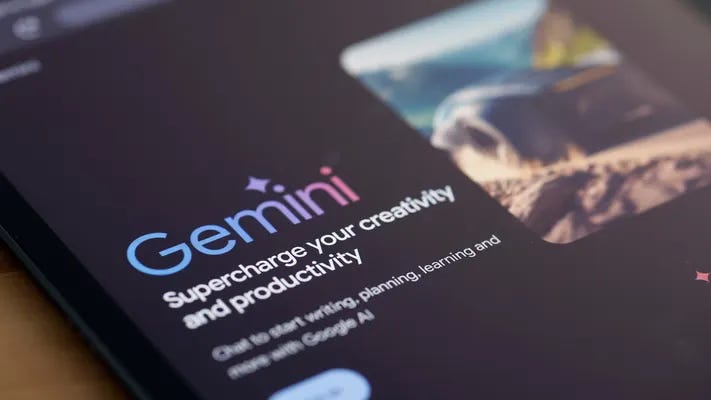Google Gemini Ad Controversy: African Perspective
The recent controversy surrounding Google's Gemini ad, which was pulled from Olympic coverage following widespread backlash, has sparked important conversations about the evolving role of AI in content creation. The ad depicted a father using Gemini, Google's generative AI chatbot, to help his daughter craft a fan letter to Olympic athlete Sydney McLaughlin-Levrone. Despite considering himself "pretty good with words," the father opts for Gemini, implying that when something needs to be "just right," AI is the superior choice.
This narrative ignited a wave of criticism, with many arguing that the growing reliance on AI for tasks traditionally done by humans could erode the richness of human creativity and communication. The debate raises crucial questions about where the line should be drawn between AI and human involvement in content creation, particularly within the African creative industry, which is deeply rooted in cultural heritage, storytelling, and originality.
The African Perspective: AI and Cultural Integrity
In Africa, the creative industry is not just about generating content; it's about preserving and celebrating the continent's rich cultural diversity. From the oral traditions that have been passed down through generations to contemporary art forms that fuse traditional and modern influences, African creativity is deeply intertwined with identity, community, and history. The introduction of AI into this space poses both opportunities and challenges.
On one hand, AI tools like Gemini can provide African creators with powerful resources to enhance their work, making it more accessible and potentially reaching a global audience. These tools can assist in content generation, language translation, and even the preservation of endangered languages by digitizing them. However, the risk lies in over-reliance on AI, which could lead to a dilution of the unique cultural elements that make African art and storytelling so distinctive.
The Balance Between AI and Human Creativity
The key issue at the heart of the Google Gemini controversy is the balance between leveraging AI's capabilities and preserving human creativity. In Africa, where creative expression is often a communal activity involving collaboration, mentorship, and the sharing of knowledge, the role of AI should be complementary rather than substitutive.
AI can assist in enhancing the technical aspects of content creation, such as editing, formatting, and distribution. However, the core of African creativity—the narratives, emotions, and cultural nuances—must remain the domain of human creators. The danger of allowing AI to take over these aspects is that it could lead to a homogenization of content, where the distinct voices of African creators are lost in favor of machine-generated output
Ethical Considerations and the Future of AI in African Creativity
The ethical implications of AI in content creation are profound. The use of AI raises questions about authorship, ownership, and the authenticity of creative work. In Africa, where intellectual property rights are already a contentious issue, the integration of AI could complicate matters further. For instance, if an AI tool generates a piece of content based on an African artist's work, who owns the rights to that content? And more importantly, does it still retain the cultural integrity that the original artist intended?
As the African creative industry continues to evolve, it is crucial to establish guidelines and best practices for the use of AI. This includes ensuring that AI tools are developed and used in ways that respect and uphold the cultural values and traditions that are central to African creativity. It also means fostering a dialogue between technologists, creators, and cultural custodians to explore how AI can be used ethically and effectively.
Conclusion: Towards a Symbiotic Relationship Between AI and Human Creativity
The Google Gemini ad controversy serves as a reminder of the delicate balance that must be struck between AI and human creativity. For the African creative industry, this balance is particularly important, as it involves not just the preservation of individual creativity, but also the safeguarding of cultural heritage.
AI has the potential to be a powerful tool in the hands of African creators, enabling them to reach new audiences and innovate in ways that were previously unimaginable. However, this potential must be harnessed in a way that enhances rather than diminishes the human element of creativity. As the industry moves forward, it is essential to establish a symbiotic relationship between AI and human creators, one that respects the unique qualities of African art and storytelling while embracing the possibilities that technology offers





